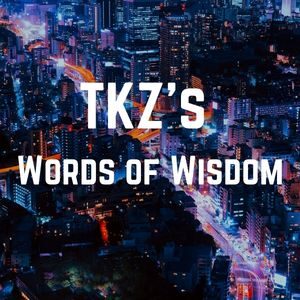In the past few years Large-Language Models AKA “A.I.” such as ChatGPT have become widespread, and been introduced into all sorts of programs. Recently here at the Kill Zone we’ve had several posts on A.I., including two already this week, one on Wednesday by John Gilstrap and another on Thursday by Patricia Bradley.
Personally I am against using A.I. in my novel brainstorming, writing and for research. I’m concerned about outsourcing my thinking and creativity to a program that is capable of neither. Many of these programs were trained on copyrighted material without the owners permission (including seven of my own books), and there’s also concern about plagiarism. I am also concerned about errors in A.I. search results.
So, for those would rather avoid using such LLMs/Gen A.I. for brainstorming, writing or research, here are a few alternatives.
Brainstorming Without A.I.
You might brainstorm a whole book, or a crucial scene, or plot point. It can be a simple as sitting down and writing out a list of ideas for that plot point, character, or surprise, or breaking out a pack of index cards and jotting down scene ideas, one scene per card.
My Words of Wisdom post from 2023 featured useful advice from three authors on brainstorming which is worth revisiting.
Then there are handy card decks to help with brainstorming, such as Storymatic, the Writers Emergency Pack and the Writing Down the Bones deck.
I first learned about The Storymatic card deck from our very own James Scott Bell, in a 2021 post entitled “How to Write When You’re Not Writing.”
As Jim noted in that post, Their ad line is “Six trillion stories in one little box. Which one will you tell?” It’s a set of 500 cards of two types. One type is a setting or situation, the other is a kind of character. I’ll draw one of each at random and put them together to see what comes up.”
Writers Emergency pack was created by screenwriter John August, and is intended to be used when you stuck while plotting or writing. There are 52 cards—26 idea cards and 26 detail cards which include suggestions on how to move forward. It’s a handy break the block or end the creative drought set of cards.
Writing Down The Bones deck, by Natalie Goldberg, author of the classic Writing Down the Bones, provides sixty prompts to spark your writing.
Brainstorming with another writer or a group of writers can be creative dynamite. Back in 2013, I attended author Kij Johnson’s two-week long writers workshop at the University of Kansas, which focused on brainstorming and creating novel outlines. After returning I decided to form my own brainstorming group and got together with three other writers. There’s nothing quite like brainstorming a novel with a group of fellow writers. Also in 2013, my now-friend and fellow author Susan Kaye Quinn blogged about one way to brainstorm a book, in seven steps, which is both a useful example and a handy method in its own right.
Writing Without A.I.
At this time Apple Pages, Literature and Latte’s Scrivener, and Libre Office do not have A.I. installed.
Pages comes with all Macs, iPhones and iPads and can import and export Word .doc files.
Scrivener is a program designed for writing various short stories, novels, and screenplays and which is available for both Windows and Mac computers.
Libre Office is an alternative to Open Office. “It’s fully compatible with Microsoft Office (365) and is backed by a non-profit organization, The Document Foundation. LibreOffice includes Writer (word processing), Calc (spreadsheets), Impress (presentations), Draw (vector graphics and flowcharts), Base (databases), and Math (formula editing).”
I’ve used the Writer and Calc modules and find them pretty similar to Word and Excel.
What about Microsoft’s Office? Disabling the included A.I. was a complex process a while ago but now there is a simple and straightforward “one click” method to turn on or off Microsoft’s A.I. named “Copilot” in the various Office apps.
Research Without A.I.
Research can be a very important part of writing your novel. It’s a topic for a future Words of Wisdom post but for today I wanted to include a link to this post by John Gilstrap which gives terrific advice on doing effective research while avoiding falling down endless rabbit holes.
Using A.I. for web searching and research is now popular with many people, including writers. But what if you want to avoid using A.I., because you are concerned about its tendency for making mistakes or even manufacturing results out of thin air? Furthermore, websites are being created by A.I. which can include false information.
I’ll start off by referencing my own (and first TKZ) post from 2022 which provided tips on using the online public library. Your local library or library system often subscribes to a number of databases which you can access online with your library card, databases assembled and curated by human experts. Needless to say, I see this as an excellent and robust alternative to using A.I. for researching a topic.
Also, as John noted in his 2021 post about “research hacks,” Wikipedia is a wonderful resource for research.
Now, when you want to avoid A.I. while searching the internet and are using the Google search engine, this article from Lifehacker provides several options. I tend to use the DuckDuckGo search engine, which has some robust privacy options, perfect for when you need to search for a murder method for your latest mystery or thriller. Turning off A.I. results in DuckDuckGo is straight-forward. It’s also worth noting that there is a full-fledged DuckDuckGo browser available for additional privacy protections.
If you wish to bypass all the AI-generated websites now out there, or want to find posts and articles quickly from a few years ago when using Google, here’s two tips:
First, choose the “Web” option from the list of Google options above the search box. This will automatically turn off the A.I. overview feature.
Second, at the end of your search query, add “Before:[DATE].” Example, “How to write a novel Before:2022.” Note the command “Before” followed by a colon and then the date (no space between the colon and the date).
***
I actually began writing this article a few weeks ago, unaware that two of my fellow TKZ authors would be blogging about A.I. just days before my own post. This goes to show how much A.I. is part of our current zeitgeist, and on so many of minds, including here at TKZ. It’s certainly a topic which many of us feel strongly about. That said, whether you use it or not is a personal choice. Today’s post was about providing some alternatives to three core aspects of fiction writing.
Do you have any additional tips, thoughts, or general advice on “going old-school” when it comes to brainstorming, writing, and/or researching a novel? Please share in comments.










